
A new approach to treating life-threatening envenomation
Ophirex's investigational candidate varespladib is a first-of-its-kind oral rescue treatment for snakebite. Varespladib works by binding to and inactivating a key toxin present in the venom of more than 95% of snake species, meaning it will have broad applicability. Varespladib is being developed as an oral, portable capsule that can be taken immediately after a snakebite.
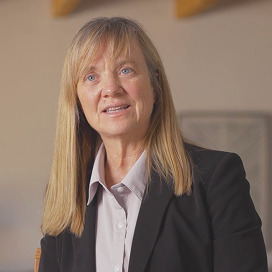
“The unifying characteristic of the people at Ophirex is our commitment to the mission—we are united by the urgent unmet need in snakebite treatment.”
A Mission-Oriented Team
Creating the first breakthrough in snakebite treatment in more than 100 years takes dedication and commitment. Ophirex is comprised of passionate professionals with diverse expertise, all focused on reducing lethality and disability from snakebite worldwide.
Scientific Breakthrough for
Snakebite Treatment
Ophirex was founded by Matthew R. Lewin, MD, PhD, an emergency physician and experienced expedition doctor with a PhD in neurophysiology, in collaboration with Jerry Harrison, a musician, producer and investor.
Dr. Lewin began to think about new ways to treat snakebite following the death of a researcher from snakebite while on expedition to Southeast Asia. The challenge is that the current standard of care – antivenom – needs to be administered intravenously in a hospital setting. In addition, the antivenom administered needs to match the snake species that caused the bite.
Dr. Lewin hypothesized that the right small molecule could neutralize the effects of a key snake venom toxin, reversing paralysis and resolving other toxicities. He worked on various solutions but knew he needed help bringing his ideas to fruition. Upon meeting Harrison, who asked a group of physician-scientists including Lewin if anyone had “any great ideas lying fallow,” Ophirex was born.
After conducting experiments in 2014 and 2015, Dr. Lewin published the first article describing the potential for varespladib as a field treatment for snakebite in 2016. He recognized then that a small-molecule approach that could be administered orally has the potential to address a significant need: the critical gap between the time when envenomation takes place and the hospital administration of antivenom.
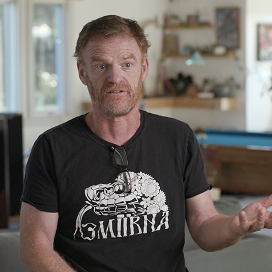
“We are transforming the paradigm of snakebite treatment and challenging a century-old approach to saving lives.”
Leadership

Mr. Gowler is a biotech and pharmaceutical industry executive with 20+ years of experience, with a focus on commercial, business operations, strategy, and business development. He held executive roles at Invivyd, PaxVax, Emergent BioSolutions, and Novartis, and currently sits on the board of directors of VIDO. He earned his BSc in biology and environmental studies from the University of Victoria and a diploma in marketing from the British Columbia Institute of Technology.
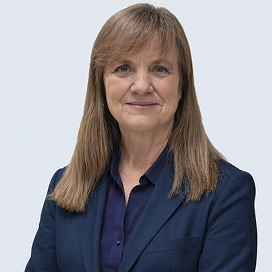
Dr. Carter is an expert in developing drugs and devices for use in austere environments. She joined Ophirex after retiring from the U.S. military as a Lieutenant Colonel. Previously she held roles as the Director of Medical Modernization for the Headquarters of the U.S. Air Force Special Operations Command and Lead Representative to the U.S. FDA and the U.S. Special Operations Command Biomedical Research Group. She earned her PhD at the University of New Mexico Health Sciences Center and her undergraduate degree at the United States Air Force Academy.

Dr. Platts-Mills is an emergency physician and clinical researcher with extensive experience designing and leading the conduct of clinical trials. His research has been funded by the U.S. Office of Research Integrity, the National Institute of Justice, and the National Institutes of Health. He is a Fellow of the American College of Emergency Physicians and a Senior Associate Editor for Annals of Emergency Medicine. He earned his MD at the University of California, Los Angeles, his MSc in Clinical Research at the University of North Carolina Gillings School of Global Public Health, and his BA at Harvard University.

Dr. Boyer is a medical toxinologist and pediatrician with extensive experience studying and treating snake and scorpion venom injury, including design, conduct and analysis of pivotal trials of antivenom for pit viper, elapid and scorpion envenoming. Her research has been funded by the U.S. FDA’s Office of Orphan Products Development, the U.S. Health Resources and Services Administration, the State of Arizona, Therapeutic Antibodies Inc., Instituto Bioclon SA de CV, Rare Disease Therapeutics, Inc, and the Arizona Biomedical Research Commission. Dr. Boyer earned her MD from Harvard Medical School and her BS from the University of Arizona.
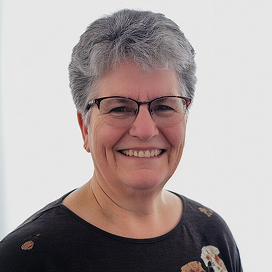
Ms. Dotson is a seasoned finance leader with extensive experience in the biotech and technology industries. Before joining Ophirex, she held roles as Vice President of Finance and Corporate Controller at Aqua Metals, Inc. (AQMS) and Corporate Controller at Diadexus (DDXS) and Transcept Pharmaceuticals (TSPT). She began her career at KPMG, serving in both U.S. and international offices over the course of a decade with the firm. Ms. Dotson earned her BS at the University of California, Berkeley.
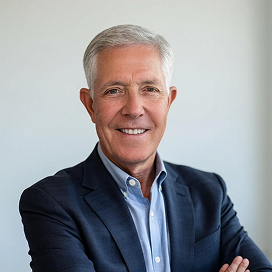
Mr. Petersen is an experienced litigator and mediator specializing in handling legal matters in the pharmaceutical and energy industries. He was a partner at Farella Braun + Martel LLP in San Francisco, where he worked for more than 40 years. Prior to becoming a lawyer, he was a nuclear engineer on submarines in the U.S. Navy. He received his JD from the University of California College of the Law, San Francisco, and his BS from the U.S. Naval Academy.
Board of Directors
Timothy Garnett, MBBS, FRCOG, FFPM
Chair
Dr. Timothy Garnett is a UK-trained physician who spent 13 years serving as Chief Medical Officer of Eli Lilly and Company. Dr. Garnett’s 30-year pharma career focused on clinical development and included leading Lilly’s Global Patient Safety prior to becoming the company’s Chief Medical Officer. He also practiced obstetrics and gynecology for eight years, along with conducting clinical research, before joining the pharmaceutical industry. Dr. Garnett also serves on the Board of Directors of Maplight Therapeutics and Cardiol. He holds a MBBS from St George’s, University of London.
Hans Bishop
Director
Mr. Bishop has more than 30 years of experience in the biotech industry and is the president, founder, and board co-chair of Altos Labs. He previously served as CEO of GRAIL, later acquired by Illumina, and as co-founder and CEO of Juno Therapeutics until its $11 billion acquisition by Celgene. He holds a BA in chemistry from Brunel University in London.
Jeremy Gowler
Director
Mr. Gowler is a biotech and pharmaceutical industry executive with 20+ years of experience, with a focus on commercial, business operations, strategy, and business development. He held executive roles at Invivyd, PaxVax, Emergent BioSolutions, and Novartis, and currently sits on the board of directors of VIDO. He earned his BSc in biology and environmental studies from the University of Victoria and a diploma in marketing from the British Columbia Institute of Technology.
Jerry Harrison
Director
Mr. Harrison, Ophirex’s co-founder, is a world-famous musician, known for his success as a member of the bands Talking Heads and Modern Lovers, along with his work as a music and film producer. He is also an experienced tech investor, producer and entrepreneur, whose notable successes include MicroUnity, VenEarth, GarageBand, iLike and RedCrow™ Inc. He holds a Doctor of Fine Arts (Honorary) from the Rhode Island School of Design and a BA from Harvard College.
Curt LaBelle, MD, MBA
Director
Dr. LaBelle is an investor who has worked with healthcare companies for over two decades. He previously served as Investment Manager for the pioneering Global Health Investment Fund, producing top financial returns and delivering life-changing therapeutics and diagnostics worldwide for conditions such as cholera, cataract-induced blindness, river blindness, snakebites, tuberculosis, HIV and postpartum hemorrhage. He now leads the AXA Investment Managers global health investment platform. Dr. LaBelle holds a dual MD/MBA degree from Columbia University.
Matthew Lewin, MD, PhD
Director
Dr. Lewin, Ophirex’s co-founder, previously led the company as CEO, President, Chief Medical Officer and Chief Scientific Officer. He is an expert in expedition and field medicine and is Board Certified in Emergency Medicine with a PhD in the field of neurophysiology. He is an elected fellow of the California Academy of Sciences, a fellow of the American College of Emergency Physicians, a Fellow National of the Explorers Club, a member of the Board of the North American Society of Toxinology, and serves on the WHO’s Snakebite Envenoming Working Group Antidotes Committee. He has authored and co-authored nearly 100 peer reviewed articles and book chapters. Dr. Lewin earned his BSc degree at the University of California, Berkeley and MD and PhD degrees at the University of Texas/MD Anderson Cancer Center Graduate School of Biomedical Sciences.
Derrick Rossi, PhD
Director
Dr. Rossi is a stem cell scientist and serial biotech entrepreneur. His accomplishments are at the forefront of regenerative medicine and biotechnology, including his co-founding of Moderna, Stelexis Therapeutics, Magenta Therapeutics and Intellia Therapeutics. Currently, Dr. Rossi is CEO of Convelo Therapeutics. He previously held positions as an Associate Professor at Harvard Medical School and Harvard University and an investigator at Boston Children’s Hospital working in stem cell biology and regenerative medicine. Dr. Rossi earned his PhD from the University of Helsinki and his MSc and BSc from the University of Toronto.
Aaron Schacht
Director
Mr. Schacht is a leader with expertise in research and development, regulatory affairs and business development. He currently serves as CEO and Board Director of BiomEdit, which he founded in 2022. Prior to BiomEdit, he served as EVP at Elanco, where he led the strategic acquisitions of Bayer Animal Health, Aratana Therapeutics and Kindred Biosciences. Prior to Elanco, he spent 25 years at Eli Lilly in a variety of roles across R&D, strategy, external innovation and product development. Mr. Schacht serves on the boards of Redux Bio, Gallant Therapeutics and The Indiana Biosciences Research Institute. He holds a BS in Chemical Sciences from the University of Illinois.